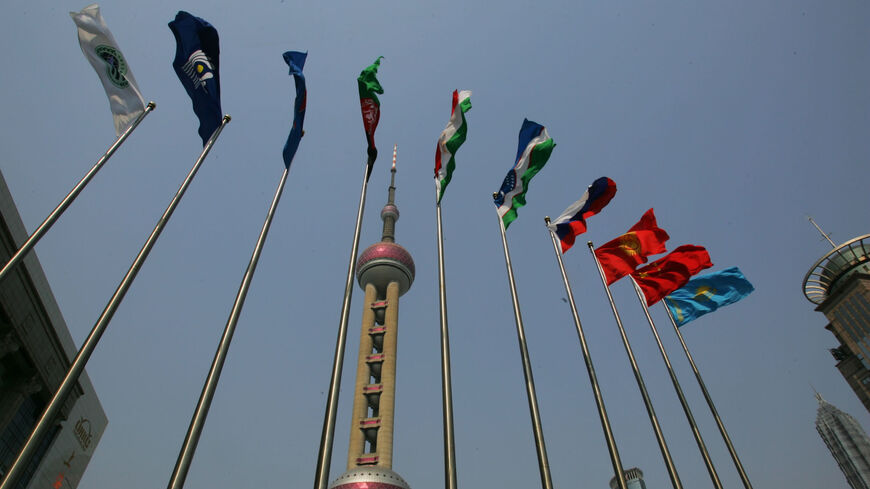Iran’s admission to the Shanghai Cooperation Organization (SCO) this week further aligns the Islamic Republic with Russia and China, though it is unclear how much membership in the bloc will benefit the Islamic Republic.
Iran became a full member of the SCO on Tuesday at the organization’s virtual meeting hosted by India, 18 years after it acquired observer status in the security and trade cooperation organization. Its application to become a full member was accepted in 2021. China, Russia, India, Pakistan and several Central Asian states are members of the SCO. The organization has additional dialogue partners and observers across the continent.
The membership comes as Iran is seeking better ties with Russia and China as well as Central Asia to break international isolation and sanctions from the United States and Europe. To this end, Iran's non-oil trade with SCO member states rose 31% to more than $17 billion from March to August of last year, according to the official Islamic Republic News Agency.
Becoming a full member of the SCO may be more symbolic than practically important to the Islamic Republic, however, according to Ryan Bohl, a Middle East analyst at the US risk intelligence firm RANE.
“Iran's entry has greater symbolic significance in terms of alignment than it does of pragmatic importance. The SCO remains a loose-knit bloc of powers rather than a tightly bound alliance like NATO,” Bohl told Al-Monitor.
The SCO has sometimes been called the “anti-NATO,” but its power is relatively limited, according to a September 2022 report from the Washington Institute for Near East Policy.
“Differences between member states have constrained the bloc’s policy coordination and regional integration since its inception. This is partly due to its insufficient bureaucratic capacity and its institutional design,” wrote Nicole Grajewski for the think tank. The SCO is also governed by consensus, which limits substantive cooperation, the report said.
Bohl said the SCO “has not developed into a vehicle with direct, tangible benefits for Iran,” but Tehran may benefit in other ways from being part of the bloc, including by boosting Iran’s chances of joining the BRICS alliance. Iran notably attended the BRICS meeting in South Africa last month.
“Iran may also enjoy better defense ties — and possibly better arms deliveries — with China and Russia thanks to its membership in the bloc,” he said, adding that cooperation between Iran and China on drones could also increase.
Iran supplies drones to Russia for use in the invasion of Ukraine, while China is a leader in global drone technology. Al Jazeera reported in January that China was the top exporter of combat drones in the past decade, citing data from the Stockholm International Peace Research Institute.
“Iran's entry signals that Tehran sees itself increasingly as aligned with a Russo-Chinese-led world order, which itself is an alteration to Iran's older, more nonaligned and Pan-Islamic worldview,” Bohl argued.
Iran is not the only Middle Eastern state seeking stronger ties with the SCO. In March, Saudi Arabia’s Cabinet approved a decision to join the organization. Last May, the United Arab Emirates (UAE) and Kuwait became dialogue partners of the SCO.
Saudi Arabia and the UAE’s desires to boost relations with the SCO will likely depend on their relations with Iran, according to Bohl.
“Saudi/Emirati aspirations to increase their SCO ties will depend on how well they're getting along with Iran. Right now, with a more dovish atmosphere between them, if the Saudis and Emiratis want to move beyond dialogue partners, they have a diplomatic runway to do so,” he said. “But if there is a resurgence in hostilities, it would almost certainly mean that the Saudis and Emiratis would freeze their advancement process in the SCO, if not withdraw entirely.”
The UAE resumed normal relations with Iran last year, while Saudi Arabia did so in March in a deal brokered by China. Saudi-Iranian relations have improved steadily since then, and Iran reopened its embassy in Riyadh last month.








